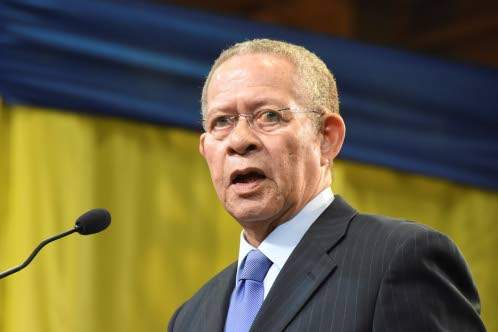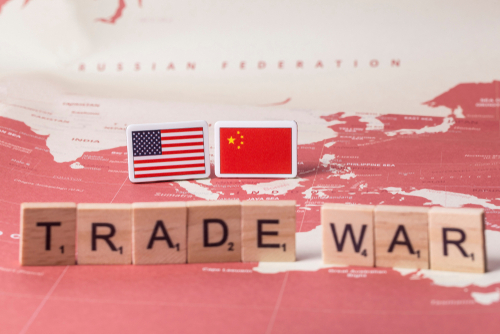(Photo: Shutterstock.com)
The peaceful coexistence of the existing superpower, the United States and the recently risen superpower, the People’s Republic of China, has been disrupted by a tit-for-tat tariff war started by the US.
The global rivalry for resources, markets and political influence has until recently not involved the Caribbean Basin. That abruptly changed when Secretary of State Mike Pompeo, on his recent trip to Latin America and the Caribbean, explicitly spoke about what he described as China’s “predatory economic practices”.
Previously, the Caribbean and Central America was a region in which the US and China did not come into conflict as they have in international trade and the South China Sea. The comments were directed at countries in what the US has traditionally regarded as an American sphere of influence.
During the last decade, China’s presence has increased significantly in the Caribbean, a region which America seriously regards as its Third Border. Diplomatic recognition is split in the Commonwealth Caribbean but weighted in favor of China.
Antigua, The Bahamas, Barbados, Dominica, Grenada, Guyana, Jamaica, Suriname, and Trinidad and Tobago adhere to a “One China” policy. Taiwan clings to support from a few very small countries: St Kitts, St Lucia and St Vincent. It may not be long before Belize and Haiti make the switch.
The attention of the US was aroused because in recent times the countries of Central America have been switching from Taiwan to China. The first “domino” was Costa Rica in June 2007. In May 2018, the Dominican Republic changed its allegiance. The White House is considering penalizing El Salvador which switched in August and Panama switched in July 2018.
China has gained considerable goodwill in the Caribbean through development assistance in the form of grants and loans for construction and infrastructure projects to fiscally constrained governments. China has also given in kind several buildings including hospitals and sports facilities.
Loans from China became available just when Caribbean economies were struggling after the global economic crisis of 2008 and when aid from traditional friends declined. One prime minister has suggested that the US should worry less about Chinese influence and think of more development assistance for the struggling region.
The suggestion of the US is that loans from China increase Chinese influence in the countries that borrow. This is a current debate in the Caribbean and indeed right across the world. This is what concerns some countries that have chosen not to borrow from China.

As to influence, former prime minister of Jamaica Mr Bruce Golding has stated “China had not sought to exercise influence on Jamaica in spite of providing considerable aid to Jamaica”.
The concern in the investment-hungry and cash-starved Caribbean is whether the United States will seek to dissuade governments in the region from borrowing from China and who would replace the critical foreign direct investment.

